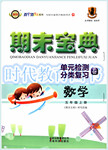题目内容
【题目】“I like photography because it captures amazing things that you might not see again,” Timmy Walsh says. He takes pictures of flowers, sunsets and road signs. But those photos don’t usually end up in a scrapbook(剪贴簿) or on his bedroom walls.
When Timmy was five, he found out that his aunt Bev had lung cancer. He wanted to do something to help her. His first idea was to sell his photos from a lemonade--type stand in front of his house in Pennsylvania. “My mom said it wouldn’t work because we were not on a busy street,” Timmy explains.
His next idea was to have an art show. Timmy decorated his home with candles, flowers, and white lights. Then he arranged his photos. Timmy’s mom, Sheila, remembers: “Our dining-room table was filled, the living room—everything was filled with photos.” Friends, family, and Timmy’s teachers came to the show. He raised more than $300 for cancer research that night. Aunt Bev was “very happy and excited,” he says.
After a local newspaper wrote a story about Timmy’s photos, a volunteer offered to help him set up a website. As people learned about his cause, called Camera for a Cure, Timmy began receiving invitations to sell his pictures at art galleries and fund-raisers. Since then, his work has appeared in more than 20 shows.
When Timmy is at a show, he greets each customer and talks about what he was thinking when he took his photos. And he always shares facts about lung cancer. Sometimes donations and sales are slow, but that doesn’t bother him. “It doesn’t matter how much money we made because we just raised awareness,” he says. Timmy knows that finding a cure for lung cancer will take time and effort. So Timmy will keep doing his part by shooting and selling photos of the things he sees.
【1】Before Timmy started Camera for a Cure, he ________.
A. always sold lemonade in front of his house.
B. liked making scrapbooks by using his photos.
C. had developed a deep interest in photography.
D. had been providing photos for a local newspaper.
【2】What can we learn about the art show Timmy held at his home?
A. It was generally popular.
B. It cost $300 to organize it.
C. It was funded by Aunt Bev.
D. It was advertised on a website.
【3】For Timmy, what’s the benefit of selling his photos at art galleries?
A. Raising money more quickly.
B. Improving his photographic skills
C. Exchanging ideas with other artists.
D. Increasing public awareness of lung cancer.
【4】Which of the following can best describe Timmy?
A. Proud and confident.
B. Imaginative but cautious.
C. Generous but self-centered.
D. Determined and warm-hearted.
【答案】
【1】C
【2】A
【3】D
【4】D
【解析】文章介绍一个热爱摄影,并用他的作品来为癌症研究募集的小男孩Timmy Walsh。
【1】推理判断题。根据第一段"I like photography because it captures amazing things that you might not see again, "Timmy Walsh says.(Timmy Walsh说:“我喜欢摄影,因为它捕捉了一些你可能再也见不到的奇妙瞬间),以及为他患了肺癌的阿姨举办画展,故推知之前他已经对摄影产生了浓厚的兴趣,故选C。
【2】推理判断题。根据第三段的内容Friends, family, and Timmy's teachers came to the show. He raised more than $300 for cancer research that night. Aunt Bev was "very happy and excited," he says.(朋友,家人以及Timmy的老师们都来到了画展,那晚他为癌症研究募集了超过300美元,Bev阿姨非常的开心激动。)可知,Timmy在家里举办的画展很受欢迎,故选A。
【3】细节理解题。根据最后一段的内容Sometimes donations and sales are slow, but that doesn't bother him. "It doesn't matter how much money we made because we just raised awareness,"(有时捐赠和销售很低,但是那并不让他烦恼,“我们挣多少钱并不重要,因为我们只是想引起人们的关注意识。”)可知,对Timmy来说,在艺术画廊卖画的好处是能增加公众对肺癌的关注,故选D。
【4】推理判断题。根据文章的描述,Timmy举办画展、卖画为癌症研究募集资金,以提高人们对肺癌的关注,故他是一位做事情有决心并且很热心的人,故选D。

 期末宝典单元检测分类复习卷系列答案
期末宝典单元检测分类复习卷系列答案